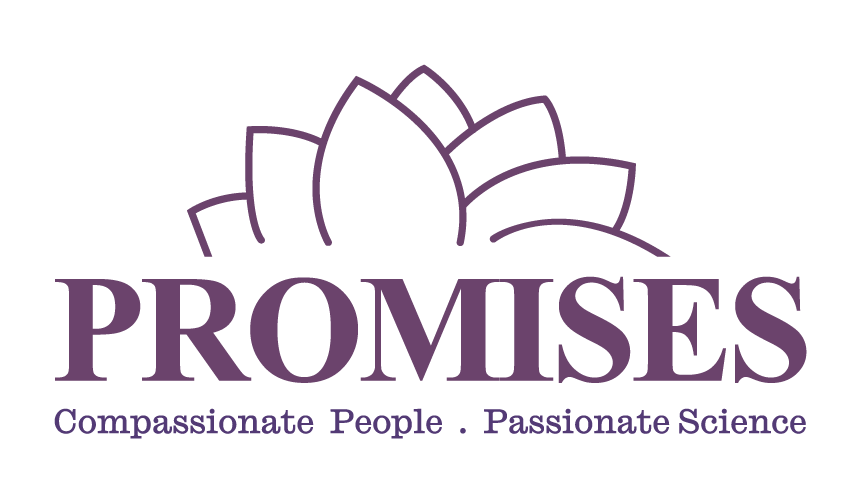If you’ve been pottering around the Promises Healthcare’s ‘Our Team’ page, and are new to the world of mental health in that you’re considering making the leap to seeking help from a mental health professional, it’s our hope that this casual guide to demystifying the titles, designations and dizzying abbreviations that adorn each profile will point you in the right direction.
For starters, there’s one thing that each of our mental health professionals have in common. They all possess at minimum a Master’s level certification in their discipline, so you can be assured of all their competencies.
Psychiatrists
As we’ve shared in a previous article, a psychiatrist is at their core a medical doctor, which certifies them to prescribe neuropharmacological support – i.e., medication.
But of course, psychiatrists more often than not do indeed possess relevant counselling and psychotherapy certifications, because being well-versed in the craft of patient care in the mental health sector does help them delve deeper into the minds and psyches of their clients, and assist them in skilfully and empathetically overcoming boundaries that some clients may consciously or unconsciously put up that stymie the therapeutic process.
Prescribing the most effective neuropharmacological support is buttressed by the psychiatrist’s skill in interpersonal communication, both verbal and non-verbal. Psychiatrists often describe themselves as observers, but it goes without saying that navigating these one-on-one interactions requires input from their side of the desk. While you might think that psychiatrists have reached the peak of the career trajectory of a mental health professional, keep in mind that by no means should you think of a psychiatrist as the fount of all mental health knowledge. Think of the ‘helping’ professions encompassed in the form of a large tree, rooted in a common desire to help people in need and supported by a trunk of science and evidence based knowledge , from which grows different branches representing the many ways in which mental health professionals can help someone in need – certain disciplines are applied more rigorously in helping certain conditions or situations. This is why Promises is described on our page as a multidisciplinary team of mental health professionals. Your treatment plan is provided by our team, and under the shade of our tree, you will be prompted to reach for certain branches – but at the end of the day, it is your choice to pick the leaves which seem most lush to you.

Psychologists
Psychologists differ from psychiatrists in one key authority. They are not medical doctors, and therefore cannot prescribe you medication. You’ll notice that our stable comprises a good number of clinical psychologists – so, what exactly are they, and how can they help you? Clinical psychologists possess doctorate degrees in psychology, and are imbued with the ability to cater to clients who suffer from any number of the discombobulating disarray of mental health conditions which sadly, are still negatively stigmatised in society. Think schizophrenia, bipolar disorder, depression, and their ilk. A clinical psychologist can make a diagnosis for you, if you think you are suffering from a mental health condition. Using the tools in their arsenals which they are trained in, such as psychometric testing, intelligence testing, personality testing, and much more, their diagnoses are firmly rooted in evidence based science. You could then make the logical conclusion that if they deem your condition treatable with medication, they would refer you to a psychiatrist. There’s a lot of symbiosis going on in our clinic!
The difference between Counsellors & Psychotherapists
We’ll deal with counsellors and psychotherapists next, because the two fields are very much intertwined, aligned in some facets, while possessing in granular detail key differences. Counselling and psychotherapy are both broadly concerned with betterment of clients in need, and there is significant overlap in the goals of either mode of therapy. Now, on to the differences, which will help you better distinguish which leaf you’d like to choose. First, there is a temporal difference between the two in both the length of treatment and how far back into your life each mode of therapy delves into in order to solve your current issue.
Counselling, on one hand, tends to favour clients who are more self aware and sensitive to their emotions and thought processes, and need a helping hand in unpacking a recent difficulty or life altering experience that they wish to resolve. This is rather unlike psychotherapy, rooted in a humanistic tradition – some may refer to it as height psychology, a term which gained currency during the time of Abraham Maslow and his espousement of self-actualisation. Psychotherapy, in this sense, takes a long, lingering look at a person’s past, life changing experiences, deep seated traumas and neuroses, or any relevant factors – all to help a client gain mastery of self (self awareness) and challenge them to enact the necessary life changes that lead to self improvement. You might well think of counsellors more as “advisors”, and psychotherapists as the “life guides”. Of course, detract nothing from both disciplines – their practitioners chose their specialities precisely because they fit into their world-views and probably, because they thought that they were good at it!
How do you choose?
Of course, given the array of therapeutic modalities and mental health professionals, we understand that choosing the right leaves can be a bewildering experience. That’s why we feel it’s best that you browse the profiles of our therapists, read their biographies and see which of them you feel most comfortable seeing. In the near future, Promises Healthcare intends to refine and streamline your selection process by having a list of issues or conditions that you are having problem(s) with – your input will then guide you to the mental health professional in our team that is best equipped to deal with your issues. For now, take a deep breath, sit back, read, absorb, think with clarity about what you want to deal with, and pick one to make an appointment with. Choosing the right therapist isn’t a one hit wonder – it takes time and patience, but rest assured that we’ll do our best to help you in that regard.
Featured Photo by Evan Dennis on Unsplash

